Rosh set up Hop & Roll earlier this year after noticing a gap in the UK street food market for Sri Lankan food. Inspired by the cuisine of her childhood and armed with her mother and grandmother’s old recipes, the passionate cook got to work creating a smorgasbord of beautiful dishes that would transport people from the bustling streets of London to the rolling green hills of Sri Lanka.
After impressing KERB organisers and traders with her Sri Lankan hoppers filled with coconut and onion sambols and various meat and fish curries, and short eats like mutton rolls, Rosh secured a place on KERB’s InKERBator programme, where she’s been learning all the tricks of the trade from the experts.
We catch up with Rosh in the latest Caterer Motivator to discuss how her first few months in business have gone and what venture she sees Hop & Roll taking on next.
Hi Rosh, thanks for chatting to us today – let’s dive right in with the questions. So why Sri Lankan food and how did you decide on the menu?
My parents came to the UK from Sri Lanka in the 50’s and so I was brought up eating their food at home. In central London there’s only two Sri Lankan restaurants and I was fed up of asking people if they’d tried Sri Lankan food only for them to say “I’ve tried Indian.” The cuisine is not known in the UK and so I saw an opportunity to bring to light the different flavours and highlight how unique Sri Lankan food is. I tested my menu on family and friends and went through about three or four rounds of tweaking the recipes and texture to make sure it was authentic. Two of the recipes for Sambols came from my mom and I’ve put my own little twist on them; Devilled Potatoes for example aren’t usually served in a Hopper, but I’ve combined Sri Lankan short eats and incorporated meat and vegetables so that there’s something for everyone to enjoy.
It’s lovely when there’s a personal story behind a food business. What do you think is the best thing about working in street food?
It’s my own business so I’m so passionate about it. The lowest point of entry to get into the food industry is through the street food scene and I think it gives people the opportunity to start their dream career even with a small amount of money. The fact that you can start up your business and be trading and making a profit within three months is incredible and it’s taken off much quicker than we thought it would.
What are the biggest lessons you’ve learnt from starting out in catering?
We’re still very new to the market so we have a lot more lessons to learn, but I didn’t want to spend loads of money on branding and setting up initially because I wanted to join KERB and they tell you how to improve on the menu and branding. I think you need to think about branding but test the market first. I did everything myself and then had the money left over to tweak other aspects of the business.
This is not a plug for NCASS, but my brother-in-law who works in health and safety advised me to join NCASS. I was a bit dubious but now I’ve joined I wouldn’t think twice about joining again. They’ve helped me with everything from due diligence, through to health and safety and hygiene inspections. I’d recommend Penny – I bought all my catering equipment from her at NCASS and it’s all been signed off without hesitation.
That’s fantastic! How did you get on to KERB’s InKERBator programme?
I’d always wanted to be with KERB and it was my mission to do a workshop with them. Initially I was asked if I’d like to do a taste and cook session for KERB traders at an event; I cooked my Hoppers and then they asked when I could join. The great thing about KERB is that you get assigned a mentor who advises you on what businesses survive and how to attract customers, as well as leading you through the branding and menu process. There’s only about 11 or 12 traders and none of you are selling the same thing; it feels like you’re in a club and you’re not competing as you all have your little niche. The more experienced caterers also share tips on which markets are good to trade at and the like.
What’s the best piece of advice you can give to others starting up in the industry?
Go for it! Don’t wait around and get on to KERB as soon as you can as they really elevate you. It’s very easy to think you can do everything for yourself but if you’ve been going for a while on the street and haven’t got to the next level, try and get a place on the InKERBator Programme. It’s great to have that support network and they made me feel like I can do anything. Also, sign up to Instagram as soon as possible and start uploading your food pictures – I don’t think I would have got on to the KERB programme if it wasn’t for Instagram.
Finally, what’s your vision for the business in the future?
I’d like to get a semi-permanent pop-up at Boxpark or at Kerb’s market halls. I’d like a casual dining set-up where office workers can walk past and grab a Hop and Roll lunch whilst on their break; that would be the dream.




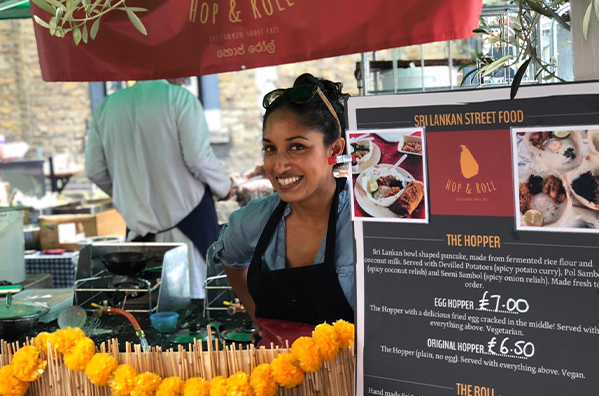
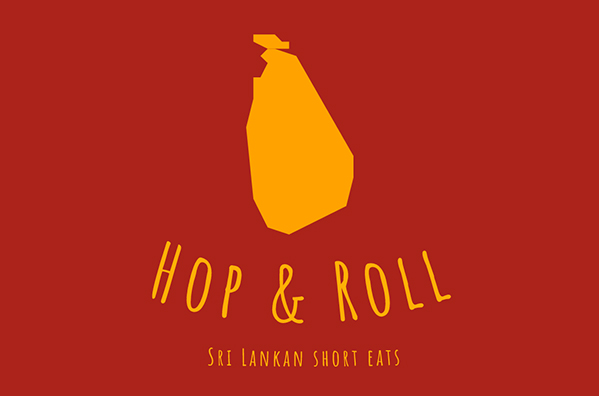
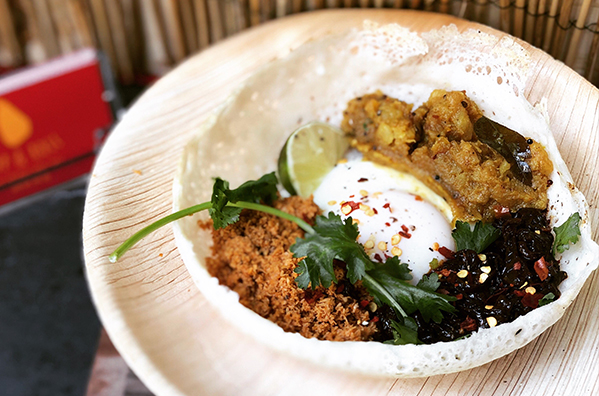
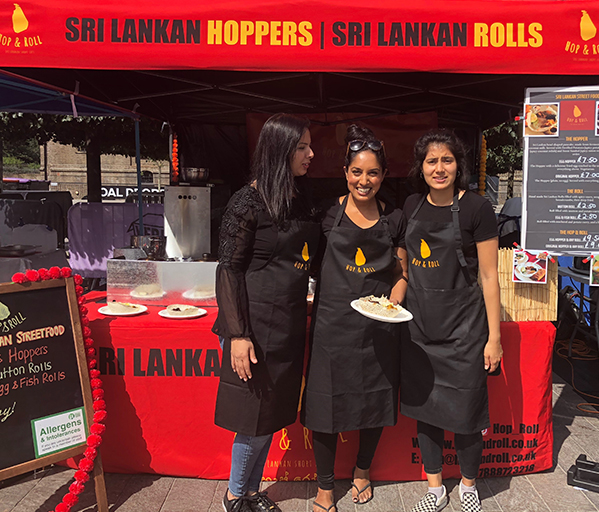
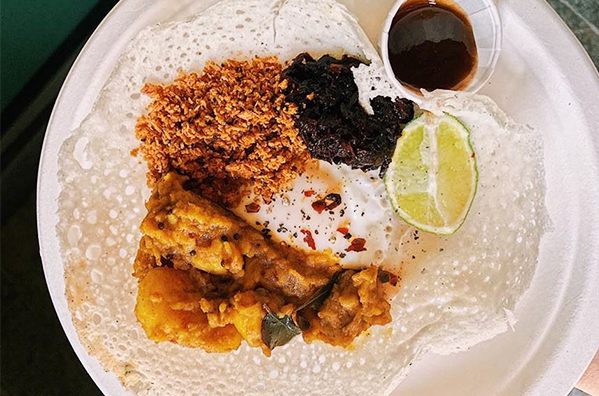
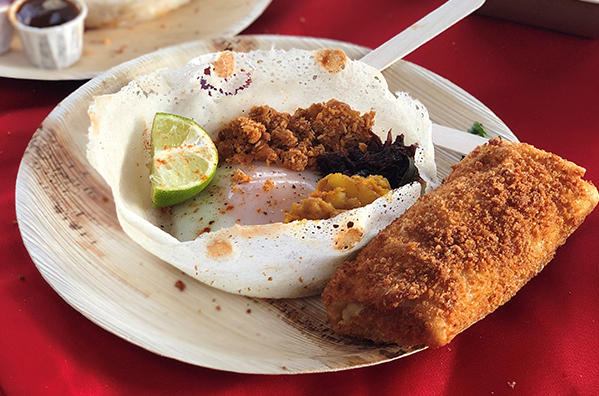
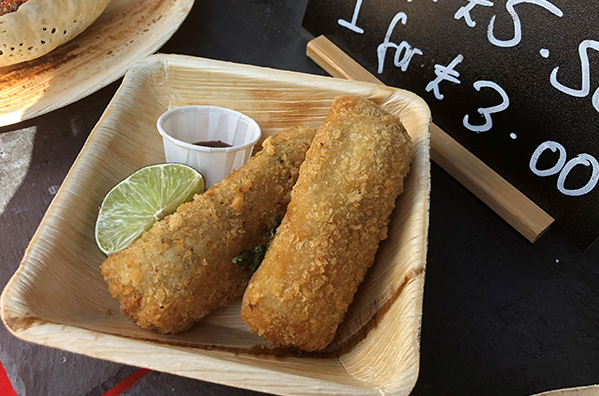
 Featured Training
Featured Training
OUR MEMBERSHIP
We're here to help make your catering business a success. Whether that be starting up or getting on top of your compliance and marketing. We're here to help you succeed.
Want our latest content?
Subscribe to our mailing list and get weekly insights, resources and articles for free
Get the emails